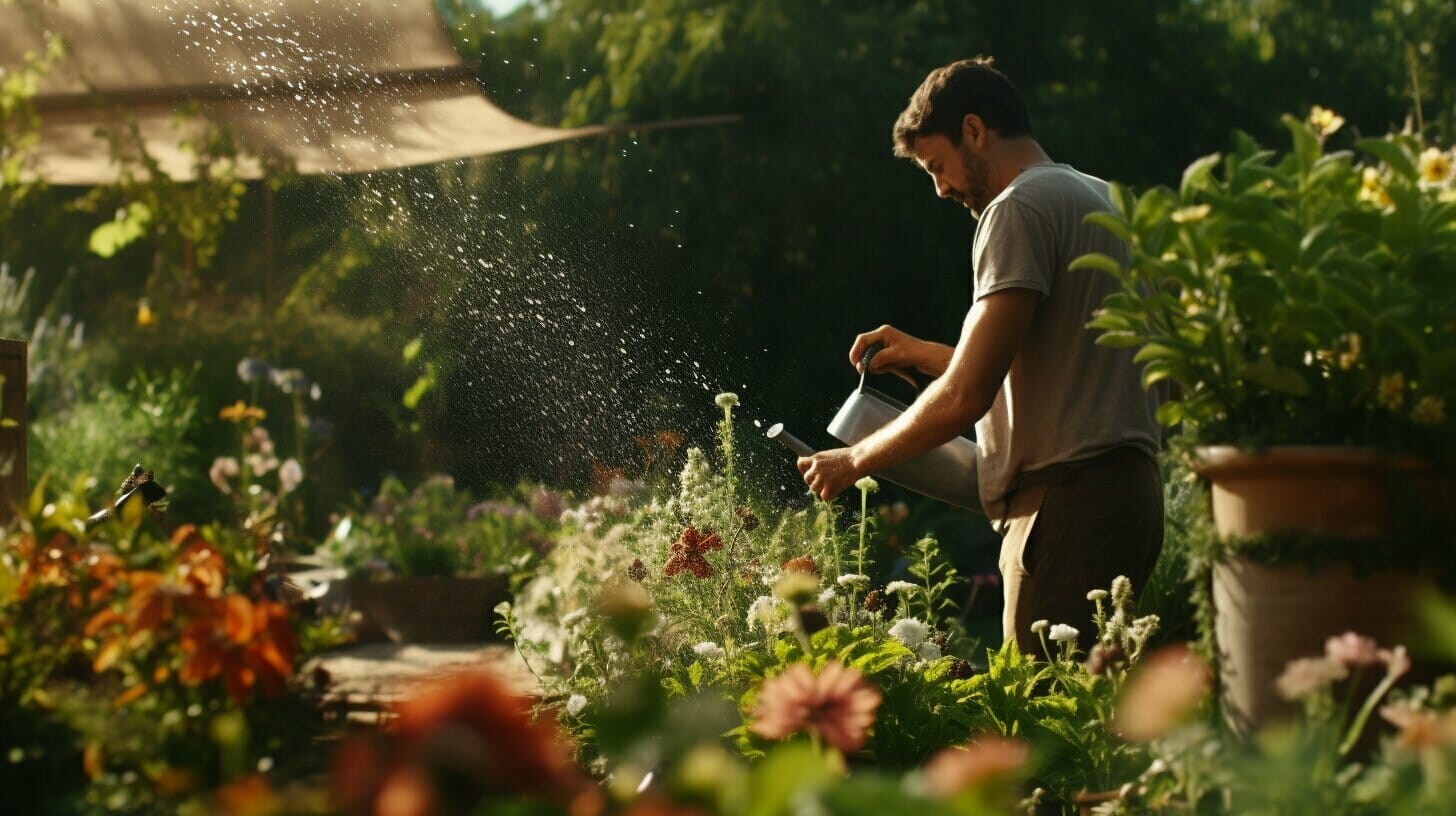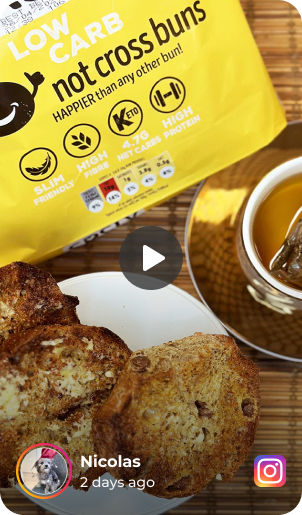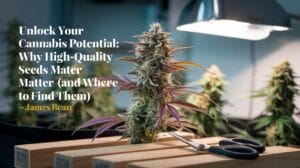Organic Gardening Techniques: Grow a Thriving Garden Naturally

Organic gardening is a method of growing plants without using synthetic fertilizers, pesticides, or herbicides. It promotes a more sustainable and eco-friendly environment by relying on natural processes and materials to cultivate healthy, thriving plants.
By using organic gardening techniques, you can enjoy a bountiful harvest of fresh, nutritious produce while also helping to protect the environment from harmful chemicals. In this article, we’ll explore the fundamentals of organic gardening and provide tips on how to grow a thriving garden naturally.
Key Takeaways:
- Organic gardening techniques rely on natural processes and materials to cultivate healthy plants.
- Avoiding synthetic fertilizers, pesticides, and herbicides can contribute to a more sustainable and eco-friendly environment.
- By using organic gardening techniques, you can enjoy a bountiful harvest of fresh, nutritious produce.
Understanding Organic Gardening
Organic gardening is a method of growing plants without synthetic fertilizers, pesticides, or genetically modified organisms. Instead, it emphasizes using natural methods to cultivate healthy soil, maintain plant growth, and minimize negative impacts on the environment.
The principles underlying organic gardening include promoting a healthy soil ecosystem, preserving biodiversity, and minimizing waste by recycling resources. One of the most important aspects of organic gardening is soil health and the role of organic matter in promoting plant growth.
Organic matter is vital to soil health as it improves soil structure, water-holding capacity, and nutrient availability. Organic matter can be added to soil by using compost, cover crops, or mulch made from leaves, straw, or grass clippings. By improving soil health, organic gardening techniques can lead to more robust, better-nourished plants and higher yields.
Starting with Organic Seeds
Using organic seeds is an essential part of organic gardening. Organic seeds are free from harmful chemicals, pesticides, and fungicides, and they have not been genetically modified. By starting with organic seeds, you can ensure the health of your plants and the safety of your garden.
When searching for organic seeds, it’s important to find a reputable seed bank. One of the best US seed banks for organic seeds is SeedsHereNow.com. This seed bank offers a wide range of organic seeds for various types of cannabis.
| Tip | Description |
|---|---|
| Choose Heirloom Seeds | Heirloom seeds are open-pollinated and have been passed down for generations. They are often more flavorful and hardy than hybrid seeds. |
| Read the Label | Make sure the seed packet indicates that the seeds are organic and non-GMO. |
| Store Seeds Properly | Keep seeds in a cool, dry place, such as a refrigerator or dry storage container, to ensure they remain viable. |
By following these tips and starting with organic seeds, you can ensure the health of your plants and the success of your organic garden.
Creating Healthy Soil through Composting
Composting is an essential practice in organic gardening that promotes soil fertility and healthy plant growth. Unlike chemical fertilizers, composting uses natural materials to enrich the soil with essential nutrients and beneficial microorganisms.
To start composting, you need a compost bin or pile that is at least three feet wide and three feet high. The contents of the compost pile are a mixture of “brown” materials, such as dead leaves and twigs, and “green” materials, such as kitchen scraps and grass clippings. These materials are layered with a sprinkling of garden soil or compost starter to introduce beneficial microbes to the mix.
It is important to regularly turn the compost pile to aerate it and provide oxygen to the microbes breaking down the organic matter. The compost should be kept moist, but not soggy, to maintain the ideal conditions for decomposition.
Composting can take anywhere from several weeks to several months, depending on the size of the pile and the materials used. When the compost is ready, it will be dark and crumbly, with a sweet earthy smell. Compost can be added to garden beds or used as a top dressing for existing plants.

Organic Pest Control Methods
As an organic gardener, using natural methods to control pests is essential. Chemical pesticides not only harm the environment, but also kill beneficial insects like bees and butterflies. Here are some effective organic pest control methods:
- Companion planting: Certain plants have natural pest-repelling properties that can be used to protect other plants. For example, planting marigolds with tomatoes can repel nematodes.
- Homemade organic sprays: Mixtures of neem oil, garlic, and chili peppers can deter pests without harming beneficial insects.
- Handpicking: Check your plants regularly for pests and manually remove them.
- Beneficial insects: Encourage the presence of predatory insects like ladybugs, lacewings, and praying mantises that feed on garden pests.
Remember, prevention is key in pest control. Ensure your plants are healthy and properly watered, and maintain a clean garden environment to avoid attracting pests.
Nurturing Nature through Companion Planting
Companion planting is a technique that involves growing different plants together for their mutual benefit. By choosing plant combinations that complement each other, gardeners can enhance plant growth, boost soil fertility, and prevent pest infestations.
The Benefits of Companion Planting
Companion planting offers numerous benefits in organic gardening. It promotes biodiversity, attracts beneficial insects, and repels harmful pests. Moreover, it can help with soil conditioning, fix nitrogen, and improve nutrient uptake.
For example, planting beans next to corn allows the beans to climb up the corn stalks, while fixing nitrogen into the soil. This not only benefits the beans, but also the corn, which requires high nitrogen levels to thrive. Meanwhile, marigolds planted near tomatoes can ward off pests such as nematodes and whiteflies.
Beyond Pest Control
Companion planting goes beyond pest control, as it can also enhance plant growth and flavor. Certain combinations of herbs, for example, can improve the taste of vegetables. Basil planted next to tomatoes, for example, can improve their flavor, while also repelling pests.
When planning a companion planting garden, it’s important to consider various factors such as plant compatibility, soil preferences, and the amount of sunlight and water required. Some plants, for example, thrive in acidic soil, while others prefer alkaline or neutral conditions.
Choosing Compatible Plants
Some popular companion plant combinations include:
| Plant Combination | Benefits |
|---|---|
| Tomatoes and basil | Basil repels pests and improves tomato flavor |
| Carrots and onions | Onions repel carrot flies and deter other pests, while carrots add sweetness to onions |
| Beans and corn | Beans fix nitrogen in the soil, promoting corn growth, while the corn provides support for the beans to climb up |
| Lettuce and radishes | Radishes add organic matter to the soil, which benefits lettuce growth, while lettuce provides shade and moisture retention that radishes prefer |
| Cucumbers and dill | Dill attracts beneficial insects that prey on cucumber pests, while cucumbers benefit from the shade provided by dill |
When selecting plants for companion planting, it’s also important to consider their growth habits. Plants that have similar heights, space requirements, and growth rates will compete less for resources and promote each other’s growth.
With careful planning and consideration, companion planting can be a powerful tool for promoting plant health and creating a thriving, sustainable garden.
Maximizing Plant Health with Organic Fertilizers
Organic fertilizers play a crucial role in providing essential nutrients to plants while maintaining soil health. Unlike chemical fertilizers, organic alternatives are made from natural sources, which makes them eco-friendly and safe for human health. By using organic fertilizers, you not only help your plants grow better, but you also support the environment by reducing your carbon footprint.
Compost: Compost is a nutrient-rich organic matter made from decomposed plant material. It not only provides essential nutrients to plants but also improves soil fertility and structure. To use compost as a fertilizer, apply it to the soil around your plants and mix it in gently. You can also use compost as a top dressing by spreading a thin layer on top of the soil.
Worm castings: Worm castings are another excellent organic fertilizer that’s rich in nutrients, enzymes, and beneficial microorganisms. They’re easy to use and can be either mixed into the soil or used as a top dressing. Worm castings also help improve soil structure and water retention.
Organic plant-based fertilizers: These fertilizers are made from organic matter, such as bone meal, blood meal, and fish emulsion. They’re an excellent source of essential nutrients, such as nitrogen, phosphorus, and potassium, which are required for plant development. However, they should be used sparingly, as overuse can harm plants and the environment.
When using organic fertilizers, it’s important to follow the instructions carefully and avoid overuse or contamination. By choosing the right organic fertilizers for your plants and using them effectively, you can help your garden thrive naturally.
Watering and Irrigation in Organic Gardening
Proper watering and irrigation techniques are crucial to the success of any garden, and this is especially true for organic gardens. Organic gardening practices emphasize the importance of conserving water and using sustainable irrigation methods.
One effective irrigation method for organic gardens is drip irrigation. This system delivers water directly to the roots of plants, reducing the amount of water lost to evaporation. It also helps prevent the spread of diseases and pests that can occur from overhead watering.
Rainwater harvesting is another sustainable irrigation method that can provide a free source of water for your garden. Install a rain barrel or several to collect and store rainwater, which can then be used to irrigate your plants.
When it comes to watering, it’s important to avoid over-watering, as this can lead to fungal diseases and loss of nutrients in the soil. A good rule of thumb is to water deeply and infrequently, allowing the soil to dry out slightly between waterings.
Additionally, using organic mulch, such as straw or leaves, can help retain moisture in the soil and reduce the need for frequent watering. This mulch also helps regulate soil temperature and suppresses weed growth.
Organic Gardening Techniques: Conclusion
Organic gardening techniques provide an excellent way to grow a healthy and thriving garden while promoting sustainable gardening practices. By understanding the principles of organic gardening, starting with organic seeds, composting, using natural pest control methods, companion planting, maximizing plant health with organic fertilizers, and watering and irrigation techniques, gardeners can create a garden that is not only beautiful but also eco-friendly.
Practice Organic Gardening Techniques
Organic gardening techniques provide a great opportunity to connect with nature, reduce your carbon footprint, and promote a healthier environment for all living things. Whether you are new to gardening or have been doing it for years, incorporating organic gardening techniques into your gardening practices can help you achieve a more sustainable garden, one that is not only beautiful but also eco-friendly.
So why not give it a try? Start with one or two techniques at a time, and see how they work for you. Over time, you will find that the more you practice organic gardening techniques, the more you will enjoy the experience of gardening, and the more rewards you will reap.
FAQ
Q: What is organic gardening and why is it important?
A: Organic gardening is a method of cultivating plants without the use of synthetic chemicals or genetically modified organisms. It focuses on using natural methods and materials to promote plant growth and protect the environment. Organic gardening is important because it helps create a thriving, sustainable garden while minimizing harm to the ecosystem.
Q: How does organic gardening differ from conventional gardening?
A: Organic gardening differs from conventional gardening in that it avoids the use of synthetic fertilizers, pesticides, and genetically modified seeds. Instead, it relies on natural methods, such as composting, companion planting, and natural pest control, to nurture plant health and protect against pests and diseases.
Q: Where can I find organic seeds for my garden?
A: It is recommended to source organic seeds from reputable seed banks. SeedsHereNow.com is a trusted US seed bank that offers a wide variety of organic seeds. When selecting seeds, look for the organic certification label to ensure they meet organic standards. Additionally, storing seeds in a cool, dry place will help maintain their viability.
Q: How can I improve soil fertility in my organic garden?
A: Composting is a great way to enhance soil fertility in organic gardening. By collecting kitchen scraps, yard waste, and other organic materials, you can create a compost pile that decomposes into nutrient-rich compost. Regularly turning the pile and adding organic matter helps speed up the composting process. Applying compost to your garden beds enriches the soil and promotes healthy plant growth.
Q: What are some natural pest control methods I can use in organic gardening?
A: There are several natural pest control methods you can employ in organic gardening. Companion planting, where certain plants are grown together to repel pests or attract beneficial insects, is one effective strategy. Additionally, homemade organic pest sprays, such as garlic spray or neem oil, can be used to deter pests. Regular monitoring of your garden and proper plant spacing can also help prevent pest infestations.
Q: What is companion planting and how does it benefit organic gardening?
A: Companion planting is the practice of growing certain plants together for their mutual benefits. Some plants repel pests, while others attract beneficial insects that help control pests or improve pollination. Companion planting can also conserve space and maximize garden productivity. By utilizing compatible plant combinations, organic gardeners can promote plant health and increase yields.
Q: What are some organic fertilizers I can use in my garden?
A: Organic fertilizers play a vital role in providing essential nutrients to plants. Compost, which is rich in organic matter and microorganisms, is a popular choice. Worm castings, derived from vermicomposting, are also a valuable organic fertilizer. Additionally, organic plant-based fertilizers, such as seaweed extract or fish emulsion, can be used to supplement plant nutrition. Always follow the instructions for proper application.
Q: How should I water my organic garden?
A: Proper watering is crucial in organic gardening. It is best to water deeply and infrequently to encourage deep root growth. Using a soaker hose or drip irrigation system can help deliver water directly to the roots while minimizing wastage. Rainwater harvesting is another sustainable watering method that reduces reliance on municipal water sources. Conserving water is important in promoting sustainable gardening practices.
Suggested Articles
;)
;)
;)




 03 Jul 2025
03 Jul 2025  10 min read
10 min read


 August 07, 2023
August 07, 2023 


RESPONSES (0)
No responses yet. Be the first to respond!